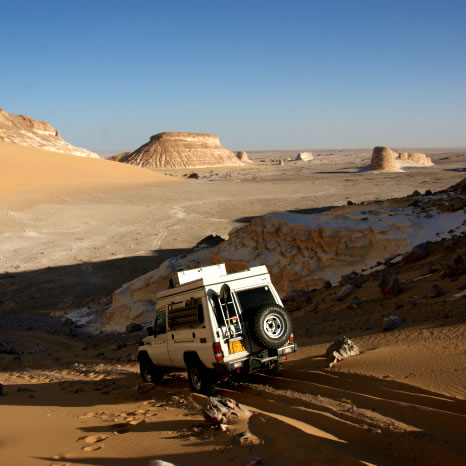Mozambique, a popular travel destination with snow white beaches and turquoise water. Contrary to that a poor population that has to survive with extremely high prices.
The border crossing from Zimbabwe to Mozambique was done again quickly and without any troubles. Unfortunately we had to pay 80 USD per Person for a visa. We drove from Mutare to Inhassaro at the Indian ocean in one goal. One reason was that we wanted to warm up again quickly after the cold temperatures in Zimbabwe. The other reason was that we heard from various travelers, that Gorongoza Park (which is situated in between) had poaching problems and only few wild animals are left. It seems like not only Zimbabwe is suffering heavily from poaching but also Mozambique. On one hand the poor population should not be blamed. On the other hand however, poaching is generally not done to feed the people. It is done by greedy people that want to make easy money. The damages can never be made up for or it will at least take decades.
[wonderplugin_slider id=“4″]
Inhassaro is not worthwhile to travel. We did neither like the village nor the beaches. Therefore we continued driving to Pomene the next day and luckily we found a little paradise. The journey itself was already beautiful because we drove through the Pomene National Reserve and the last view kilometers to the campsite (GPS coordinates S22.92276 E35.58506) went along an isolated beach. Yet a 4 x 4 is obligatory because of the challenging deep sandy roads. Our Campsite was located at the end of a promontory and because of low season we were almost the only guests. Like on all beaches in Mozambique local woman sold fresh bread, fruits and vegetables every morning and in the evening their husbands delivered fresh fish from the ocean. It felt like heaven. Looking back we should have stayed at Pomene beach because we liked it the most of all other beaches. But after five days we were ready for some more challenges. Before leaving the area we stopped on the other side of the bay to have a look at a hotel ruin at a fantastic location. The hotel was closed in 1975 and has never found a new buyer since. That was not understandable for us and we suspected that it might be either incredibly expensive or there must be property difficulties.
Following a recommendation we drove to Morrungulo. However as already mentioned the beach and the campsite (GPS coordinates S23 13.941 E35 29.506were far away from Pomene’s standard. Therefore we left the next day and went to Tofu and Barra. We selected again a wild deep sandy road passing by isolated little villages. However we suspected that this road must be very frequented by tourists during main season because the children’s behavior reminded us a bit of Ethiopia. Children were standing at the road begging and we got also hit by a stone (we just hoped that this happened unintentional). When our car was cruising slowly through deep sand, some brave kids were trying to hold onto our car and to do car surfing. Their special fun looked really dangerous to us and we did not appreciate that at all. Tofu is known for its turquoise water and their spectacular diving and snorkeling possibilities. But we did not like the tourist hot-spot and continued driving to Barra to the Bayview Lodge (GPS coordinates S23 47.092 E35 29.915).
Our next destination was Bilene in order to visit Anton, the brother of Viktoria’s friend. Anton and his wife Lee build up the very nice Bilene Lodge (GPS coordinates S25 15.258 E33 20.578) which is beautifully located directly at a lagoon. We really enjoyed staying there and discovered the area by food and by Kayak. As we had seen enough beaches after two weeks we did not drive further south. Luckily we got the very good hint from Anton to cross the border of the two countries Mozambique and South Africa in the connecting National Park Limpopo/Kruger. Thanks to that, it worked very well. However we were wondering why Limpopo Park is called “National Park” because the only animals we discovered were cows. And cows have nothing to do in a National Park. We suspected that all impalas (which are usually in every single park) were eaten up by the poor and hungry population. As we arrived too late at the Limpopo entrance gate a border crossing was not possible anymore on that day and therefore we had to stay one night at a campsite with a nice view at a lake.
We noticed everywhere in Mozambique that the people were not as warmhearted and open minded as in other African countries. It always took a little while until we managed to get a smile. However we really appreciated that the locals were very discreet and not pushy at all. We suspected that this might either be still the consequences of the previous civil war or because of the masses of tourists they have to deal with – and some of them are not that friendly to locals. We could not believe how expensive the groceries were in the streets and supermarkets and we are still curious how the population can afford this. Several travelers were telling us that they got robbed in Mozambique. Luckily we did not have any troubles. But we were also were extremely careful and did not leave our car unprotected for one second. We enjoyed the two weeks in Mozambique, however the main attractions of the country are the beaches and the ocean.
Our Highlights:
The paradise beach Pomene
Tofu‘s turquoise water and the diving and snorkeling paradise.
Bilene’s beautiful nature


